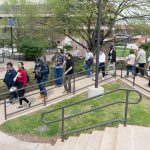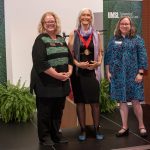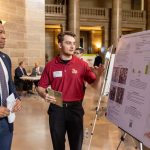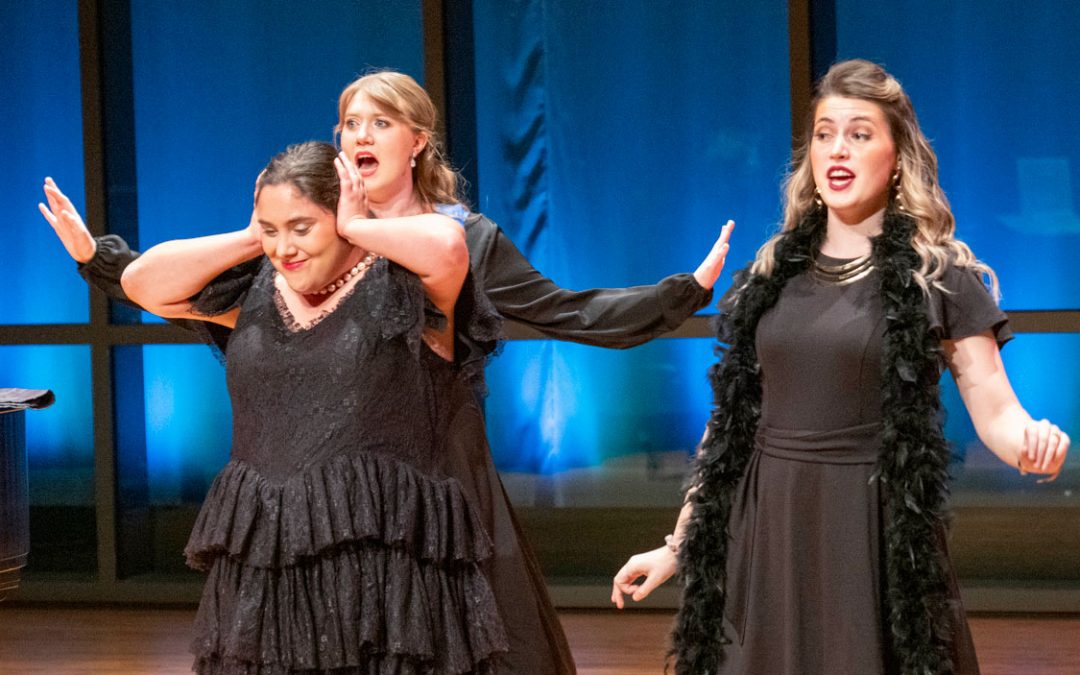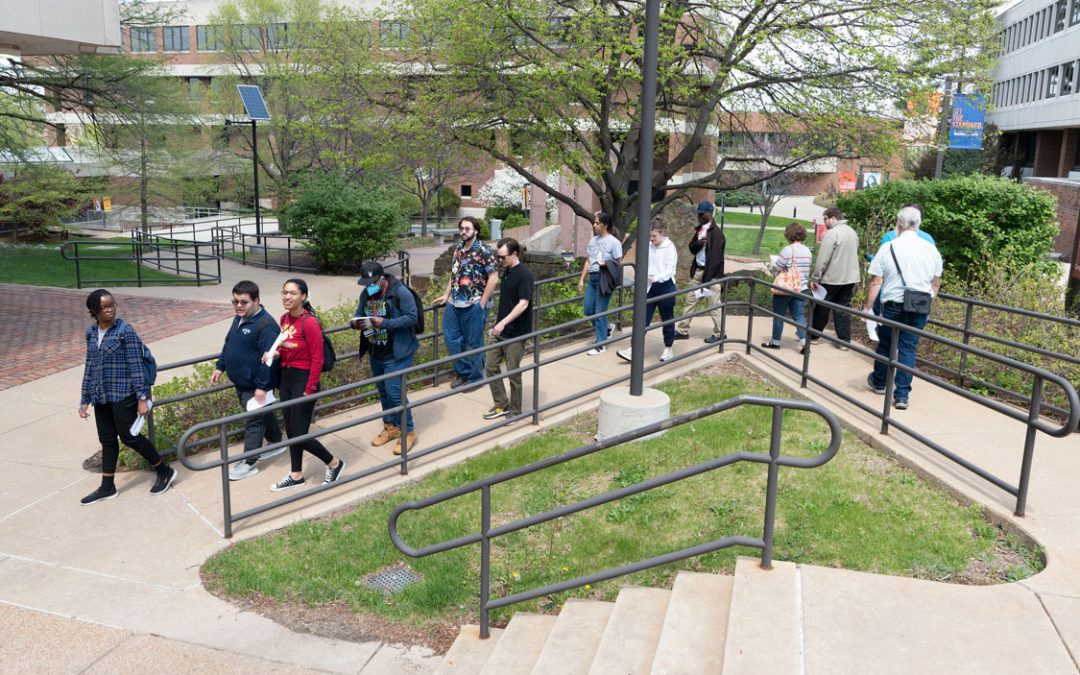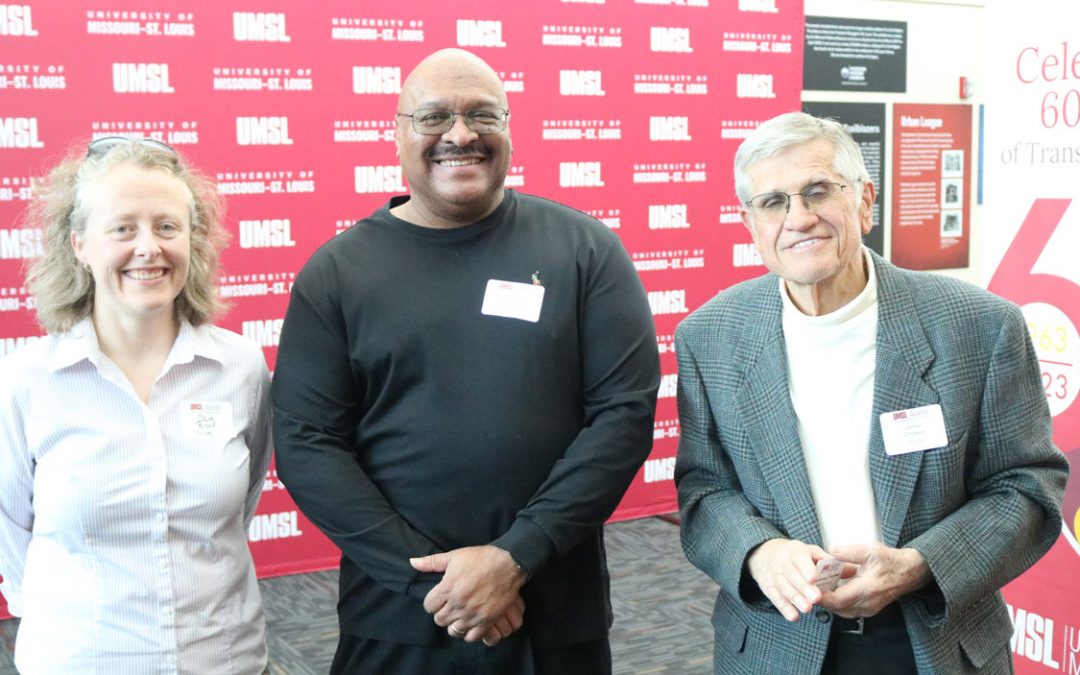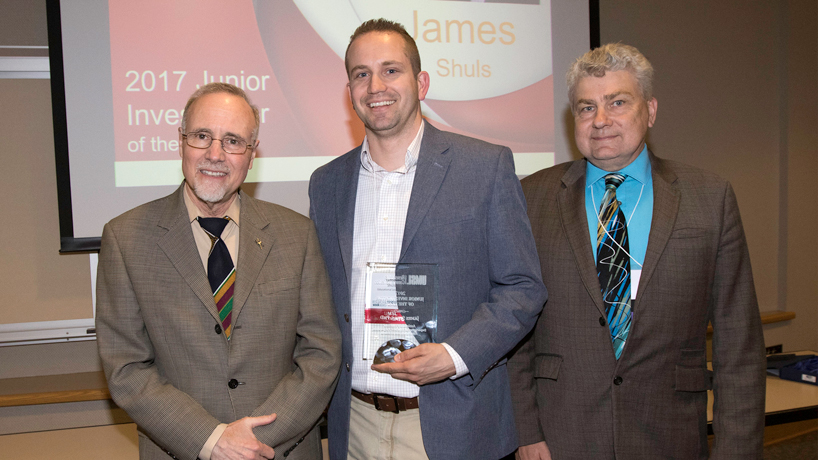
Chancellor Tom George (at left) and Interim Vice Provost for Graduate Studies and Research Chris Spilling (at right) present Assistant Professor of Educational Leadership and Policy Studies James Shuls with the 2017 Junior Investigator of the Year award at the reception concluding Research and Innovation Week on campus earlier this month. (Photo by August Jennewein)
James Shuls, an assistant professor of educational leadership and policy studies at the University of Missouri–St. Louis, is shining the light on the Public School Retirement System of Missouri.
Missouri teachers pay 14.5 percent of their salaries into a pension plan that will support them in their retirement years. On a defined-benefit system, their retirement isn’t based on how much they contribute over time but rather on a formula that adds their number of years of service and the average of their top three consecutive years’ salaries.
So just what does Shuls see wrong with this system? His research suggests it creates winners and losers.
“I examine how the system itself creates inequities between school districts,” Shuls said. “The short three-year average salary calculation captures salaries when they are most inequitable. This system favors our wealthy school districts at the expense of our poorer districts.”
Shuls collected salary schedules from more than 460 school districts in the state and analyzed how different pension formulas would impact teachers in these districts. Of course, lower salaries and higher teacher turnover in poorer school districts would dwindle the number of years of service and the dollar amounts of the top three consecutive years of salary for those teachers.
“Changing the structure of the pension system would benefit the teachers with the lowest salaries,” Shuls said. “The state could use more years of service in pension calculations. Another solution would be to tie benefits to contributions.”
The initial funding for Shuls’ research came from a University of Missouri Research Board grant for $13,757. His results and publications earned him an additional $30,000 grant from the Charles Koch Foundation to continue and extend his research.
For his persistence and in-depth look at PSRS, Shuls was named UMSL’s 2017 Junior Investigator of the Year. Chancellor Tom George presented him with the award at a reception during Research and Innovation Week earlier this month.
“His research builds on a body of literature in a way that is greatly underexplored,” Department of Educator Preparation Chair Nancy Singer wrote in her nomination letter. “The exciting thing about this research is its potential for broader application.”
The award makes a strong statement about Shuls’ academic drive. The former elementary teacher and director of education policy for the Show-Me Institute has only been an assistant professor at UMSL since August 2014.
“It’s funny you say that,” Shuls said, “because I feel like I have not accomplished enough. I love what I do, and I have been fortunate to work with talented people who have helped me along the way.”
Shuls has nearly 30 academic publications and more than 20 op-eds, has presented at a total of 27 presentations and/or panels and has numerous radio and television news appearances.
He’s interested in all things education, but Shuls has been a big local proponent of addressing the problems with PSRS in Missouri.
Some other Missouri teacher pension issues Shuls talks about include the shortchanging of teachers who don’t make the five-year minimum to qualify for a pension and the nontransferable nature of the pensions, which means teachers are losing out on money that could be crucial in their later years.
He also notes that the system has recently faced financial hardship with PSRS investments not returning enough for its promised payouts to retirees, who notably are living longer now. Additionally, they have not received cost-of-living adjustments because of the lack of money to support such an increase.
Click here for a simple explanation of how teacher pension plans work and learn certain outcomes for different teachers.
Media Coverage
St. Louis Post-Dispatch
Springfield Business Journal
KTRS (The Big 550 AM)





